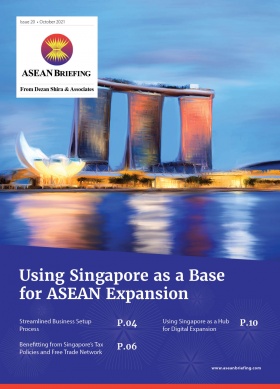A Guide to Taxation in Brunei
As a resource-rich country with a small population, Brunei has one of the least number of taxes in Asia. The corporate income tax is one of the lowest in the region at 18.5 percent, and there is no personal income tax, no value-added tax, and no withholding tax on dividends, interest, royalties, and fees for technical services for resident companies.
Brunei is recognized as one of the most stable macro economies in the world, and the country is eager to attract more foreign investments, particularly in the non-oil and gas sector. The country also has the least number of taxes in Asia – there is no personal income tax, export tax, payroll, or manufacturing taxes. Brunei is able to afford this system due to its hydrocarbon assets, which form the backbone of Brunei’s economy and account for 60 percent of the GDP. Further, with a population of just 444,000 people, the country’s hydrocarbon industry provides a comfortable quality of life for the local population.
A company is considered a resident if it is managed and controlled in Brunei, whereas a person who is physically present in the country for 183 days or more during the year is considered a resident.
Businesses in Brunei will be impacted by the following taxes:
- Corporate income tax;
- Value-added tax;
- Withholding tax; and
- Petroleum tax.
How much is corporate income tax in Brunei?
The corporate income tax (CIT) rate is 18.5 percent and all limited companies, whether they are registered in Brunei or overseas, or are registered as a foreign branch in Brunei, are subject to local taxes on income derived from Brunei.
Companies are charged the 18.5 percent rate on the following threshold:
- 25 percent of the first BND 100,000 in assessable income (US$72,273) is charged at the 18.5 percent rate; and
- 50 percent of the next BND 150,000 in assessable income (US$106,909) is charged at the 18.5 percent rate.
How much is the value-added tax in Brunei?
There is no value-added tax (VAT) in Brunei.
How much is withholding tax in Brunei?
For resident companies in Brunei, there is no withholding tax on dividends, interest, royalties, and fees for technical services. Non-resident companies, however, will have to pay rates between 2.5 to 10 percent.
|
Rates for Resident and Non-Resident Companies in Brunei |
||
|
Nature of income |
Tax rate (%) |
|
|
|
Residents |
Non-residents |
|
Dividends |
0 |
0 |
|
Interest |
0 |
2.5 |
|
Royalties |
0 |
10 |
|
Fees for technical services |
0 |
10 |
Personal income tax in Brunei
There is no personal income tax in Brunei, however, employers are required to contribute five percent of the wages of local employees to the Employees Trust Fund.
Petroleum tax
Under the Income Tax (Petroleum) Act of 1963, oil and gas companies operating in the country are subject to a special 55 percent income tax rate.
Can Brunei diversify from oil?
The Brunei government has focused on five priority sectors for growth; downstream oil and gas, food, tourism, and information and communications technology services.
The state wants the private sector to be more ambitious and take on the role to explore new market opportunities. Brunei’s private sector accounts for less than half of employment, with the public sector accounting for the rest.
About Us
ASEAN Briefing is produced by Dezan Shira & Associates. The firm assists foreign investors throughout Asia and maintains offices throughout ASEAN, including in Singapore, Hanoi, Ho Chi Minh City, and Da Nang in Vietnam, Munich, and Essen in Germany, Boston, and Salt Lake City in the United States, Milan, Conegliano, and Udine in Italy, in addition to Jakarta, and Batam in Indonesia. We also have partner firms in Malaysia, Bangladesh, the Philippines, and Thailand as well as our practices in China and India. Please contact us at asia@dezshira.com or visit our website at www.dezshira.com.
- Previous Article How Will the RCEP Impact Thailand’s Economy?
- Next Article The Guide to Employment Permits for Foreign Workers in the Philippines







